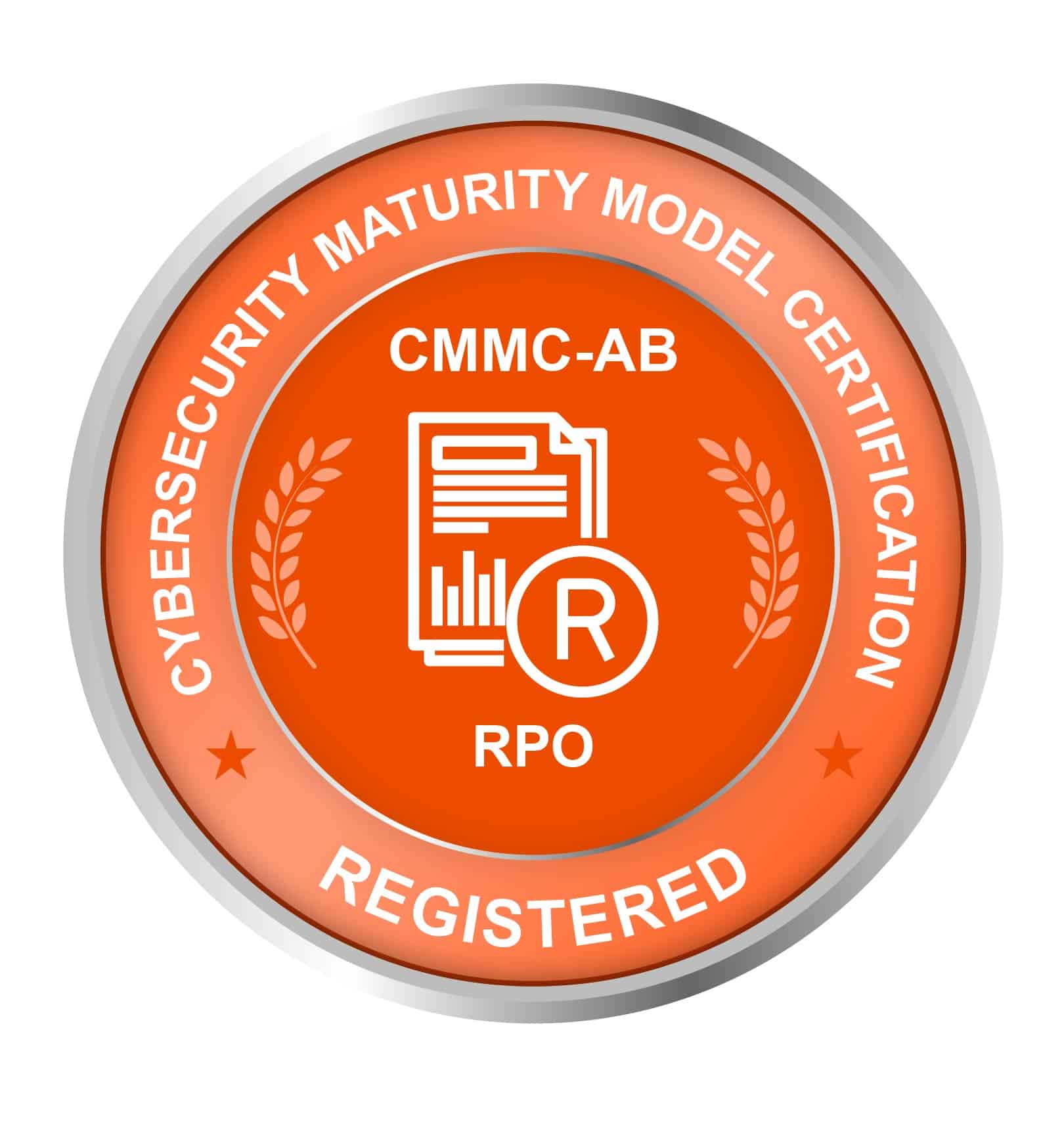Why Choose Cloud Servers Over On-Premise Servers: Key Advantages Explained
Choosing between cloud servers and on-premise servers is critical for many businesses today. Both options offer unique benefits and challenges, which can influence the efficiency and effectiveness of your IT infrastructure. Understanding the key differences and advantages can help you make an informed decision that best suits your business needs.
The shift towards digital transformation highlights the importance of flexibility, scalability, and cost-efficiency in your server choices. Cloud servers have increasingly become a preferred option due to their ease of management and the ability to adapt to changing demands quickly. The right choice can significantly impact your business operations, making it essential to weigh all factors carefully.
Download our information graphic here.
Scalability
Scalability is a significant advantage when considering cloud servers over on-premise servers.
With cloud servers, you can quickly increase or decrease your resources based on your current needs. This is possible because cloud providers offer flexible plans that you can adjust without significant downtime.
On-premise servers, however, require you to purchase additional hardware when you need to scale up. This often involves a lengthy process of ordering, installing, and configuring new servers, which can be time-consuming and expensive.
In cloud environments, adding more storage or computing power is as easy as clicking a few buttons. This quick scalability helps you respond to changes in demand much faster than with on-premise servers.
Cloud services also allow you to pay only for what you use. This can be more cost-effective, especially for businesses with fluctuating or seasonal workloads.
On-premise servers may leave you stuck with unused capacity during low-demand periods, which can waste resources and money.
Moreover, many cloud providers offer automated scaling features. These features dynamically allocate resources as needed, ensuring optimal performance without manual intervention.
Cloud scalability can be a game-changer for businesses experiencing rapid growth. It lets you quickly expand your infrastructure without worrying about physical space, power, or cooling requirements.
Additionally, cloud providers usually have a global network of data centers. This allows you to seamlessly scale your operations to different regions, providing better performance and redundancy.
The ability to scale quickly and efficiently is a solid reason to choose cloud servers over on-premise servers. Understanding your business needs and how they fluctuate can help maximize cloud scalability.
Cost Efficiency
One reason to choose cloud servers is their cost efficiency. Cloud computing uses a pay-as-you-go model, which means you only pay for the resources you use. This flexibility can help you manage your budget more effectively.
With on-premise servers, you need to invest in hardware upfront. This can be a significant expense, especially for small businesses. Additionally, maintaining and upgrading this hardware incurs ongoing costs.
Cloud servers eliminate the need for significant initial investments in hardware. This makes it easier for startups and small businesses to start without breaking the bank. You can also scale your resources up or down based on your needs.
Operational costs are another area where cloud servers can be more efficient. Cloud providers handle maintenance, upgrades, and security, reducing the need for in-house IT staff. This can lead to significant savings on salaries and training.
Cloud servers also tend to lower energy costs. Data centers operated by cloud providers are often optimized for energy efficiency, which not only helps reduce costs but also benefits the environment.
Another advantage is the ability to predict expenses. With on-premise servers, unexpected hardware failures can lead to costly repairs or replacements. Cloud servers offer more predictable costs, which can make budgeting easier.
In summary, cloud servers provide a cost-efficient alternative to on-premise servers. They require lower upfront investments, offer predictable expenses, and reduce operational and energy costs, making them attractive options for businesses looking to optimize their budgets.
For more information, check out the differences between cloud and on-premise servers as well as the detailed comparison in Microsoft’s analysis.
Automatic Updates
Using cloud servers means you benefit from automatic updates. This feature ensures your software always has the latest features and security patches without effort.
With on-premise servers, you need to update the software manually. If updates are neglected, this can be time-consuming and lead to outdated systems.
Cloud providers handle all updates automatically. This means your system stays optimized and secure.
Automatic updates in the cloud eliminate downtime. Updates are often performed without interrupting your access to services.
Automatic updates also free up your IT team. They can focus on more critical tasks rather than routine maintenance.
By choosing cloud servers, you ensure your software is always current. This keeps your data secure and your system functioning efficiently.
Learn more about the benefits of cloud servers from Forbes.
Disaster Recovery
Disaster recovery is crucial for any organization to ensure business continuity after an unexpected event. Transitioning to cloud servers offers significant advantages over traditional on-premise servers for disaster recovery.
With cloud servers, you can benefit from greater scalability. You can easily adjust your resources based on your needs without investing in additional physical infrastructure.
Cloud disaster recovery provides increased flexibility. You can access your data from anywhere, allowing quicker recovery times than on-premise solutions, which require physical access to the hardware.
Another advantage is improved reliability. Cloud providers offer redundant systems, meaning your data is backed up in multiple locations. This reduces the risk of data loss due to hardware failure or other issues affecting a single site.
Another reason to consider cloud-based disaster recovery is cost-effectiveness. Maintaining on-premise disaster recovery infrastructure can be expensive due to hardware, maintenance, and personnel costs. Cloud solutions often provide a more budget-friendly option, allowing you to pay for only the resources you use.
For businesses looking to enhance their disaster recovery strategies, cloud computing introduces modern approaches that were impossible with traditional systems. You are not limited by the physical constraints of on-premise setups, enabling you to respond to incidents more effectively and efficiently.
Considering these benefits, moving your disaster recovery to the cloud may provide your organization with the resilience it needs in the face of unforeseen events. Learn more about these advantages in this article on Disaster Recovery in the Cloud.
Flexibility
Cloud servers offer remarkable flexibility for your business needs. Unlike on-premises servers, which require physical space and hardware, cloud servers allow you to scale resources up or down with just a few clicks.
This adaptability is particularly useful during peak business periods. You can quickly add more server capacity to handle increased demand without significant investment in physical hardware.
A hybrid solution lets you combine the benefits of both cloud and on-premises servers. In this setup, data and applications can move between local servers and the cloud, giving you greater control and multiple deployment options. This setup can improve your IT agility and overall efficiency.
Cloud providers also offer various configurations and services tailored to your specific needs. This means you aren’t limited to one type of server or architecture. Whether you need more storage, processing power, or software options, the cloud can adjust to fit your requirements.
One of the best features of cloud flexibility is the metered pay-per-use model. You only pay for what you use, which can be more cost-effective than maintaining an on-premises server. If your server usage varies, this can save you money and significantly reduce waste.
Management of cloud resources is simple and often automated. You can deploy new servers much faster than adding physical hardware. With the cloud, you can spin up a new server by pressing a button or running simple commands, making your IT department’s life much easier.
Cloud servers also offer better recovery options in case of failures. With backups stored in multiple locations, your data is safer than storing everything on an internal server, where a single malfunction could cause significant data loss.
Global Reach
Choosing cloud servers can significantly enhance your business’s global reach. Cloud servers are accessible from any location with internet access, so you and your team can collaborate in real-time, no matter where you are.
Cloud providers often have data centers around the world. This allows you to deploy your services closer to your users, reducing latency. Your applications can run smoothly and respond quickly, providing a better user experience.
Cloud-based infrastructure supports scalability, enabling you to handle traffic spikes without geographical limitations. If your business expands to new regions, you can easily scale up your resources. This flexibility is not as easily achievable with on-premise servers.
Using cloud servers makes it easier to comply with local data regulations. Many cloud providers offer data residency options, allowing you to store data within specific regions. This can be crucial for businesses operating internationally.
Cloud services also provide redundancy across multiple locations, ensuring uptime even if one data center fails. This geographical distribution improves reliability and keeps your services available to users worldwide.
Cloud solutions enable you to test and deploy new features globally without delays. You can simultaneously make updates available to all users, providing a consistent experience. This can be beneficial for maintaining a competitive edge in a fast-paced market.
Leveraging cloud technology can enhance your business’s ability to reach customers globally. By using cloud infrastructure, you position your business for success on an international scale.
Enhanced Security
One of the main reasons to choose cloud servers over on-premise servers is their enhanced security. Cloud providers invest heavily in security measures and experts to protect your data.
Cloud servers often have advanced firewalls, encryption, and multi-factor authentication. These protections ensure your data remains safe from unauthorized access and cyber threats.
Most cloud services comply with strict security standards and certifications, such as ISO 27001 and SOC 2. This compliance adds another layer of trust and reliability for businesses.
Cloud providers also offer regular security updates and patches. This keeps the infrastructure protected against new vulnerabilities without requiring your constant attention.
Using cloud servers can reduce the risk of physical theft or damage. On-premise servers are susceptible to threats like natural disasters, break-ins, and accidental damage.
Many cloud providers have dedicated security teams that monitor and respond to threats around the clock. This provides continuous vigilance that is often hard to match on-premises.
Data backups and disaster recovery options are usually built into cloud services. This means you can restore your data quickly in case of any loss, reducing downtime and potential financial impact.
Cloud security also lowers the operational expenses of data compliance. Compliance with data protection laws can be costly if managed in-house. By using cloud services, you leverage the provider’s investment in compliance.
For more details on the advantages and disadvantages, refer to the comparison on DNSstuff about Cloud vs. On-Premises Security.
No Hardware Maintenance
You won’t need to worry about hardware maintenance when you use cloud servers. Unlike on-premise servers, cloud servers are managed by third-party providers. This means you don’t have to handle physical hardware issues.
Cloud servers free you from dealing with equipment failures or regular hardware upgrades. The cloud provider takes care of all these tasks.
When you use cloud computing, the provider handles server upkeep. If there are any malfunctions, they fix them without your intervention. This keeps your focus on your business operations.
With cloud servers, there’s no need to budget for hardware repairs or replacements. This can save your business money and reduce unexpected expenses.
Another advantage is reliability. Cloud providers ensure their hardware infrastructure is constantly monitored and maintained, helping minimize downtime and disruptions for your services.
You also gain access to updated technology without installing new physical servers. Cloud providers regularly update their systems to ensure optimal performance and security.
Cloud providers’ data centers have robust monitoring systems. These systems allow for quick issue detection and resolution, keeping your services running smoothly.
Switching to cloud servers means you don’t need a dedicated team for hardware maintenance. Your IT team can focus on other important tasks, improving overall efficiency.
Utilizing cloud servers eliminates the need for on-site physical space for servers. This is particularly beneficial for businesses with limited space.
Choosing cloud servers helps you avoid the hassle of physical hardware management. This allows you to focus on strategic business goals rather than maintenance issues.
Learn more about the benefits from this detailed comparison.
Energy Efficiency
When it comes to energy efficiency, cloud servers often outperform on-premise servers. Cloud service providers like Microsoft and Amazon have invested heavily in making their data centers more energy-efficient. These data centers are designed to optimize energy use, reducing waste significantly.
Cloud servers achieve higher utilization rates than on-premise servers. For example, cloud server utilization can reach up to 65%, while on-premise servers typically run at around 12% to 18%. Higher utilization means more efficient use of energy, leading to less wastage.
On-premise servers require significant amounts of energy to maintain. This includes cooling, which can be a substantial drain on resources. Implementing energy-efficient practices can help, but achieving the same efficiency level as large cloud providers is often challenging.
Cloud providers also focus on sustainability efforts. For instance, the Microsoft Cloud is designed to significantly reduce carbon emissions. This benefit extends to organizations using cloud services, helping them lower their carbon footprints.
Additionally, cloud data centers often leverage renewable energy sources. This shift towards greener energy solutions reduces carbon emissions and supports a more sustainable environment. Cloud computing can, therefore, be a more eco-friendly choice compared to on-premise solutions.
Switching to cloud servers can be a strategic move if your organization is concerned about energy efficiency and environmental impact.
Collaboration
Cloud servers are great for collaboration. They allow multiple users to work on duplicate files simultaneously. This real-time collaboration can boost productivity.
Because cloud servers are accessible from anywhere, your team members can work together regardless of their location. This is especially helpful for remote teams. You can share, edit, and store files quickly and easily.
Cloud solutions often come with built-in communication and project management tools. These tools help teams stay organized and aligned with their goals. For example, document sharing and version control are integrated, reducing the risk of errors and conflicts.
Security is critical for collaboration. Cloud providers often offer robust security features, including data encryption, user authentication, and regular backups. Your team can work confidently, knowing their data is protected.
Compared to on-premise servers, cloud servers simplify collaboration by reducing the need for IT support. Cloud providers handle the maintenance, updates, and troubleshooting. This frees up your team to focus on their tasks.
With cloud servers, you can scale quickly as your team grows. Adding or removing users is straightforward. This flexibility makes it easier to manage team changes without disrupting workflow.
In today’s fast-paced work environment, efficient collaboration tools are essential. Cloud servers provide a seamless way for your team to work together, regardless of location. This enhances your overall ability to meet deadlines and achieve business goals.
For more information on this topic, you can visit the Forbes article.
Learn about the key differences between on-premise and cloud solutions to further understand the advantages of cloud-based collaboration.
Scalability and Flexibility
Cloud servers offer significant advantages in scalability and flexibility. They enable businesses to grow without being limited by physical hardware and provide more efficient resource allocation.
Adapting to Business Growth
As your business expands, cloud servers allow you to scale up quickly. There’s no need to purchase and install additional hardware. Cloud providers offer a vast range of resources that you can access instantly. This means you can handle increasing workloads with ease. For example, cloud computing platforms allow storage or processing power to be added as needed. This can be particularly useful during peak seasons or promotional events.
Cloud solutions offer an elastic approach, allowing you to scale down when demands decrease. This reduces waste and lowers costs. Unlike on-premise servers, you pay only for what you use. This adaptability ensures that your IT infrastructure supports your business efficiently at all stages of growth.
Resource Allocation
Cloud servers excel in efficient resource allocation. Traditional on-premise servers often involve dormant resources when not in peak use. In contrast, cloud solutions dynamically allocate resources based on real-time needs.
You can take advantage of various pricing models to optimize costs. For instance, you can choose between on-demand resources for short-term spikes and reserved instances for predictable, long-term needs. This flexibility can lead to significant cost savings. Cloud services often come with monitoring tools to track usage and optimize performance.
These features ensure that resources are used efficiently, reducing waste and increasing productivity. They help maintain operational efficiency without the need for constant manual adjustments.
Cost Efficiency
Cloud servers can be more cost-effective than on-premise servers due to their payment model and lower operational costs. By examining operational expenses and the difference between capital expenditures (CapEx) and operational expenditures (OpEx), you can see why cloud servers are often the better choice.
Operational Costs
Cloud servers reduce many operational costs that come with maintaining on-premise servers. You do not need to spend on physical hardware, cooling systems, or dedicated space.
Additionally, IT teams spend less time on manual maintenance and can focus on more strategic tasks. With cloud services, the provider manages updates, security patches, and ongoing maintenance, which saves you both time and money.
Finally, cloud services usually include technical support, reducing the need for in-house expertise.
CapEx vs. OpEx
Using on-premise servers requires significant Capital Expenditures (CapEx) upfront for purchasing hardware and infrastructure. This can strain your budget and require long-term financial planning. Hardware can also become obsolete, necessitating further investments.
In contrast, cloud servers operate on an Operational Expenditures (OpEx) model. You pay as you go, based on usage, which helps manage cash flow. This usage-based billing means you only pay for resources when needed, making costs more predictable and scalable.
By transitioning from CapEx to OpEx, businesses can adapt quickly to market demands and invest more in innovation rather than infrastructure. You can check out this overview of cloud versus on-premise server costs and benefits for more information.
Security and Compliance
Cloud servers offer numerous advantages in terms of security and compliance. They provide advanced data protection measures and help you meet regulatory standards more efficiently.
Data Protection
Cloud servers employ robust security protocols to protect your data. These include encryption, firewalls, and multi-factor authentication. Your data is encrypted at rest and in transit, making it less vulnerable to breaches.
Firewalls are constantly updated to block malicious traffic. Additionally, cloud providers invest in advanced threat detection and monitoring systems, which are often more sophisticated than on-premise solutions.
Cloud providers also offer automated backups and disaster recovery options. These features ensure your data is always protected and can be restored quickly in case of an incident.
Regulatory Standards
Meeting regulatory standards is crucial for businesses. Cloud servers help you comply with many regulations, such as GDPR, HIPAA, and PCI DSS. These platforms offer built-in compliance features, making it easier for you to adhere to legal requirements.
Many cloud providers offer detailed compliance documentation and regular audits. This helps you verify that your data management practices meet the necessary standards. Moreover, cloud services often have dedicated compliance teams to assist you.
Choosing the cloud can simplify the process of staying compliant. You can benefit from the stringent security measures and certifications that cloud providers maintain, regularly updated to meet new regulatory demands.



















